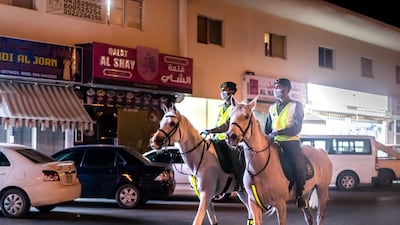As I was sitting idly in my office recently, I received a call on my mobile from an unknown local number. I usually answer such calls because sometimes they are from people with whom it might be interesting to talk.
On this occasion, it was not that kind of call. Instead, it was from someone whose knowledge of both Arabic and English seemed rather limited. Another wrong number, I thought, and closed the line.
A few minutes later another call came from the same number, but this time someone with understandable, though accented, English.
To summarise, his message was that he was from the Emirates Identity Authority. They were checking, he said, all bank ATM cards against ID cards as part of a national programme. "Fine", I said. "Go ahead.”
Could I please, he asked, confirm my Emirates ID number and give him my ATM number?
I couldn’t be bothered to lead him on further so I closed the line with a choice epithet or two.
I could have just left it at that but thought better of it. There have been frequent warnings recently from the banks, including the Central Bank, about such scam calls. It is time that a much-enhanced and concerted effort was made to try to track the fraudsters.
So I sent the number to a friend in Abu Dhabi Police, suggesting that he might like to inform the relevant cyber-crimes unit. Perhaps using geo-locating technology they could find out where the phone was. Even if the number was pre-paid, there should be a record somewhere of the identity of the person who first purchased the SIM card.
The number was duly passed on. I hope that the cyber-crimes team have had some success.
It would be nice, I told my friend, if I could get a call-back from the cyber-crimes team in due course to let me know what they did in response to the report, even if only to say that they tried to check the location but failed.
I made a similar report a couple of years ago and never heard anything. So, was it worth making the report or was I just wasting my time?
Our police, however hard they work, cannot identify all criminal or potentially criminal activity by themselves. They need tip-offs from the public.
In return, I think it is reasonable to expect at least something in the way of a thank you. There is no need for a lengthy explanation of the process of any investigation or of the identity of actual or alleged criminals. That, in turn, would encourage those members of the public who make reports to continue doing so.
With a new wave of such telephone scam attempts, perhaps it would be a good idea for the police to actively promote knowledge on a regular basis of a telephone number or an email address through which the public can make reports.
Even though I have not heard back yet about my complaint, I am confident that encouraging the public to make reports and then providing basic feedback or a thank you could go a long way over time to promoting a different kind of relationship between the public and the police.
It could strengthen the bonds between the community and the police within the context of the police being part of the public, rather than being something related to but separate from the community.
That, after all, is the basic element of community policing and an important part of the overall relationship between government and society.
There are other steps that could be taken, as well.
I have fond memories from my childhood in a quiet English village of the local “bobby on the beat”, the local policeman who strolled around, with an ever-watchful eye. He knew the kids who were likely to get into trouble and their parents. A quiet word here and there and often just his presence delivered good dividends.
Our Special Patrol Units in Abu Dhabi, like the mounted police or the guys who ride around on bicycles, are already doing a lot to promote that kind of interaction. It would be good to see more of it.
A few years ago, there were regular foot patrols in Mussaffah, with a noticeable, positive effect on the reduction of crime. I am glad to hear that a reintroduction of the practice is being considered.
Initiatives like this, as well as dedicated crime-reporting hotlines, are of benefit to us all – to the police in terms of preventing crime and apprehending criminals, and to the public in terms of a safer society.
Peter Hellyer is a consultant specialising in the UAE's history and culture


